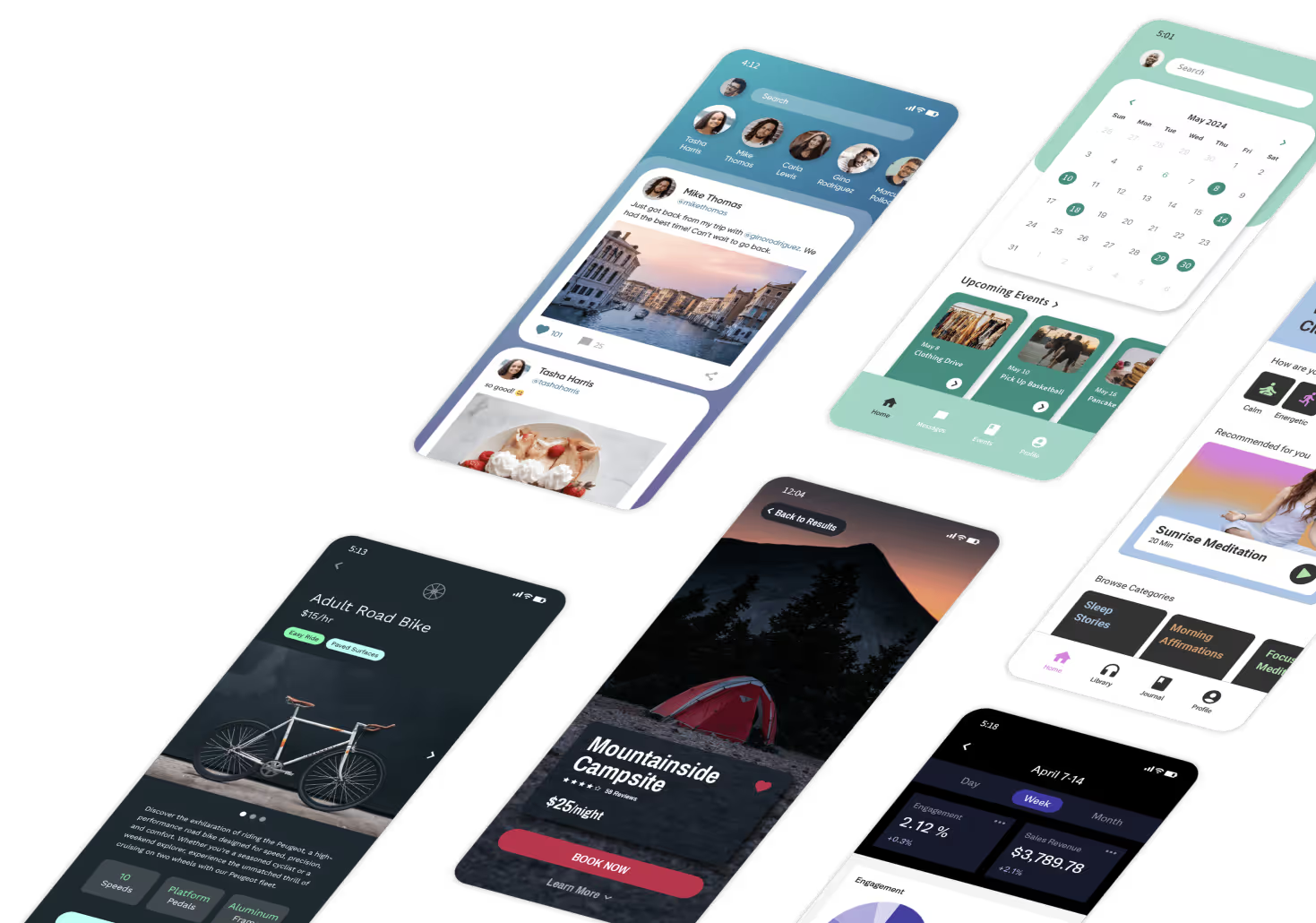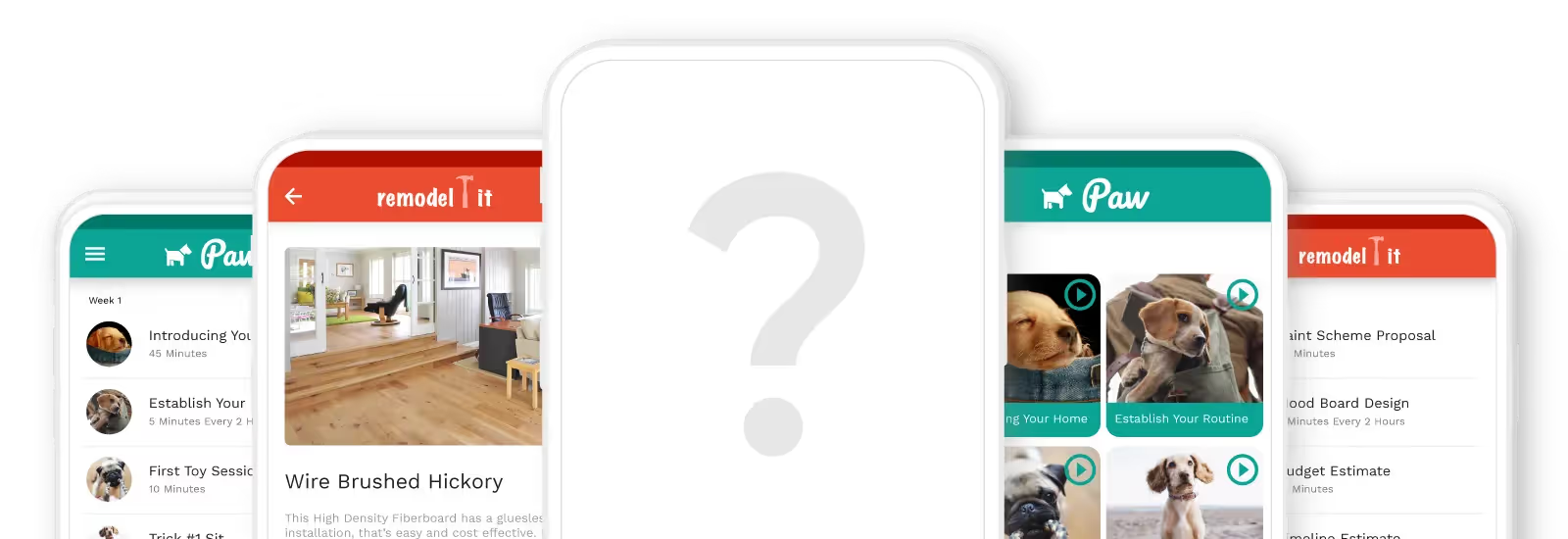This is a crossover series from both Adalo, a mobile app platform for builders, and Lloyd, a career advisor for young professionals. We hope this series provides examples and encouragement to today’s builders about how no-code can impact, influence, and uplift your career trajectory.
Not too long ago, the task of building an app or a website would have been a major challenge for a business founder who didn’t have a technical background. The task would have needed investment in resources - and time - if a founder decided to learn how to code themselves. App and website building would’ve required a team of developers and designers, and as well as an expert in product building projects.
These obstacles weren’t insurmountable, since a lot of great products still made it out into the world, however most founders came from a technical background. Despite that, there were a lot of products constrained by these challenges in resources, time, and finances that were never able to take off. Then came no-code. No-code has changed the game and has allowed anyone to build their businesses from the ground up without a degree in computer science. In doing so, the career trajectories of so many individuals have been positively impacted by the emergence of no-code tools.

What is no-code?
No-code lets you build software and automation visually, instead of writing lines and lines of script and code. No-code solutions use drag-and-drop software builders to create apps without ever needing to know programming languages. It’s scalable, affordable, and within the reach of anyone that has an idea and learns how to use no-code tools. They can build an app, a website, or even more complex software.
As a prospective business owner, this is great news! It unlocks many more opportunities to build products without the constraints that existed before no-code, especially for people looking to start a side hustle.

Here are some stories of people that launched no-code businesses
This article highlights the stories of two no-code makers: Axel Meta and Max Haining.
How I started my career
Axel Meta
I started my career as an actor for commercials when I was 14, then I got into apps and stayed in that sector since then. I love creating things (apps, software, acting, painting), and I also love learning about new things that are happening in the world (crypto, NFTs).
I went to college with the idea for an app, turned the idea into a real product and got hooked on the software world. I knew so little about technology that I didn't even know I could learn how to build it myself. I used the money I made as an actor to hire developers. I thought programming was wizardly and not something I could do.
Max Haining
I studied business and politics at university, before moving into the social impact space. I was always interested in how to blend tech and social impact, which is where no-code lands for me. It's a democratising force that will give rise to a more diverse set of problem solvers and make our digital spaces more inclusive.
I first stumbled on the concept of no-code when I came across this article by Ryan Hoover: “The Rise of No-Code”. Reading this was a turning point. It slowly dawned on me that I’d no longer be reliant on developers, my ideas would no longer get old in notebooks, and ultimately, I could bring my own ideas to life.

Taking a risk after a failed app idea
Axel Meta
Once that app "failed" I thought I was not meant to be an entrepreneur but rather work for someone else. I moved to a company and soon after I started an internal project from scratch: an app (education content marketplace) for emerging countries which is installed in over 1 million phones now. I handled everything from product, content, design, partnerships...It was pretty much a one person show using any developer I could find available.
But a week before COVID started, I quit my job to start things on my own. I tried a bit with e-commerce and soon found no-code! It gave me the motivation I needed to build whatever I wanted without knowing how to code.
Max Haining
A year before I discovered no-code, a startup idea I attempted to build at university failed. It was an “AirBnb for storage” idea. I think it didn’t take off, in part, due to the fact all our team including myself were non-technical. We couldn’t iterate quickly enough to address feedback from our users.
Building products with no-code
Axel Meta
In the last year, I’ve built multiple apps and services, mostly with Adalo, Integromat, Airtable and more no-code tools!
A friend sent me a link to Glide. I started using it but was very limited by its features, so when I found out about Adalo I went all in!
My first app was very simple and I kept cold-emailing to sell the service. As I had more customers that started requesting more features, I started developing features for them. Some of the products I’ve built are subscription services for SMB, an audio-to-text converter app with 150k downloads, and a feedback collector app for internal teams. It's been a lot of learning by doing, trying and failing.

Max Haining
I built a platform and community called 100DaysOfNoCode. It’s fully built with no-code tools and this functions as a landing page, learning management platform, resource directory and member portal. 100DaysOfNoCode is a community to help creators, operators and entrepreneurs learn to no-code and bring their ideas to life.
Over 500 no-code projects and businesses have been launched as part of the 100DaysOfNoCode community, which began only in March 2020!
How did you bring your idea to life?
Max Haining
Here are the steps I normally take when starting out to build something!
1. Validate if the idea is a business.
One of the best ways to do this is research and see if there is something like it already. If so, that's good validation. Competitors = good. You can then research what they are or are not doing well.
2. Consider the actual business model.
At the highest level this is doing some financials, asking myself what would it take for this to get to a $10,000 business. Depending on your aspirations, try to model it, and try to ask questions like “How many users at $X would make this plausible?” Does this make financial sense? To go deeper here you can use the Lean Business Canvas and list out things like value propositions.
3. Think about what you want to achieve and whether this excites you or not.
I write these down on a Notion doc and use the concept of listing anti-goals here i.e. I built a newsletter that is automated, one of my anti-goals was I didn't want to be curating it every day, that would be timely and painful.

4. What's your business' identity?
This is when I start to think about how I want this thing to look and feel. Is it fun, serious, socially responsible? Here you want to think about names, colours, assets. If you're definitely moving forward with the project, grab that domain!
5. Think about your architecture and start building!
What will the stack be, what have others used for similar use cases? As much as I’d like to build the rocketship, I think of ways that I can validate this as quickly as possible, to stop myself from building something nobody wants. This can be done by a simple landing page to gauge interest or building in public. If you think you can build V1 quicker than you can validate it, start sketching down the user flows and understand the core feature set you need for it to work. Then pick your toolkit and start building.
What’s your advice to someone thinking of starting a no-code product business?
Axel Meta
Pay attention to your database! Once you understand how a database looks (it's pretty much just cells with information and formulae), you will be able to use a tool like Adalo far more easily, because it's clear what you're doing and how you need to operationalize your idea.
Max Haining
Consistency is key when learning any new skill. Try not to put too much pressure on yourself to build something super complex. Start small and work your way up!
We hope this article sheds light on how no-code is democratizing creativity and providing new and exciting career growth opportunities for today’s makers. If you'd like to chat with a career advisor to plan out your next steps, give Lloyd a try for free for 14 days.














